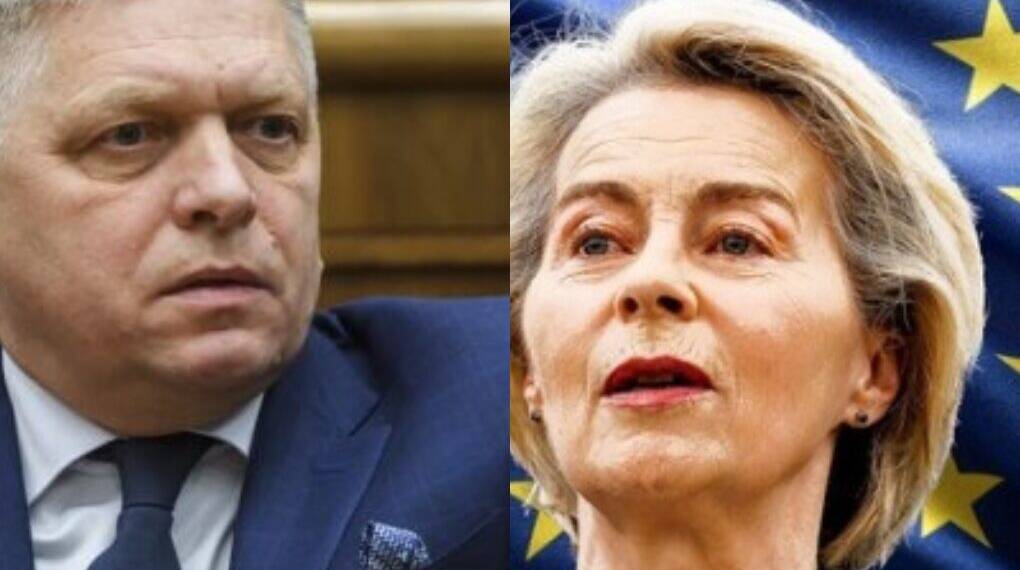Slovakia is considering taking the European Union to court over the bloc’s plan to end Russian natural gas imports by January 2028, Prime Minister Robert Fico announced on Wednesday. The proposal, part of the EU’s broader strategy to reduce dependency on Moscow following the war in Ukraine, has triggered sharp criticism from Bratislava and Budapest — the two EU member states most reliant on Russian energy.
Speaking at a televised briefing, Fico said he had directed Slovakia’s economy, foreign affairs, and justice ministers to evaluate possible legal avenues to challenge the policy. A government discussion document is expected next week, where officials will examine whether a lawsuit can be filed against the European Commission.
“There will be a document discussed by the government next week, where we will consider the possibility of filing a lawsuit,” Fico said.
Deep Dependence and Economic Fears
Slovakia and Hungary have consistently voiced concerns over the EU’s push to break away from Russian gas and oil. Both countries inherited Soviet-era infrastructure designed to transport Russian energy, leaving them far more dependent on Russian supply routes than Western European members. Bratislava argues that alternative sources — including LNG and pipeline gas from other regions — would be significantly more expensive, potentially harming Slovakia’s industrial base and households.
For Fico, a long-time critic of sanctions on Moscow, the plan represents not only an economic threat but also a violation of commitments Brussels made to Slovakia earlier this year. He referred to written guarantees reportedly signed by the European Commission President, intended to cushion Slovakia from shortages or extreme price volatility during the transition.
“Everything will depend on how the European Commission fulfils its commitments to Slovakia,” Fico said, adding that the government expects Brussels to honor its assurances on supply security and affordability.
Limited Power to Block the Plan
Slovakia has been unable to block the phase-out plan because it requires approval by a majority of EU member states rather than a unanimous vote. That has left Bratislava with few levers to influence the policy. Instead, Fico has tried to exert pressure by delaying other EU decisions that require unanimous consent — specifically, the last two sanctions packages against Russia.
While Fico did not specify the financial damages Slovakia may seek or outline the legal basis for the potential lawsuit, analysts say any challenge would likely revolve around EU treaty obligations ensuring energy security, equitable burden-sharing, and respect for national economic vulnerabilities.
EU Negotiations Still Underway
The EU’s timeline for phasing out Russian fossil fuels received support from energy ministers last month, but the proposal is not yet finalized. Negotiators from member states must agree on the final legislation with the European Parliament, which is still debating its stance.
Brussels maintains that ending dependence on Russian energy is critical for Europe’s long-term security and resilience. EU officials argue that while some member states face bigger transition challenges, substantial financial and logistical support packages — including energy infrastructure funding — are already available.
Frozen Russian Assets Also in Dispute
Alongside the gas issue, Slovakia’s government will also consider another contentious EU initiative: using frozen Russian state assets to secure a €140-billion loan for Ukraine. The proposal remains under negotiation, and Fico reaffirmed his opposition on Wednesday.
He warned that the plan raised “legal questions and uncertainties,” echoing concerns from several other EU members who fear Moscow could retaliate legally or economically.
A Growing Rift Inside the EU
Fico’s stance places Slovakia increasingly at odds with the majority of EU governments, which view the 2028 deadline as necessary to end Europe’s vulnerability to Russian leverage. Yet for Slovakia, which still receives most of its natural gas from Russia via Ukraine, the shift could be economically disruptive without firm guarantees and financial assistance.
As the EU moves toward completing its energy transition framework, Bratislava’s threat of legal action underscores the widening fault lines within the bloc — particularly between states prioritizing energy security and those emphasizing geopolitical strategy.








